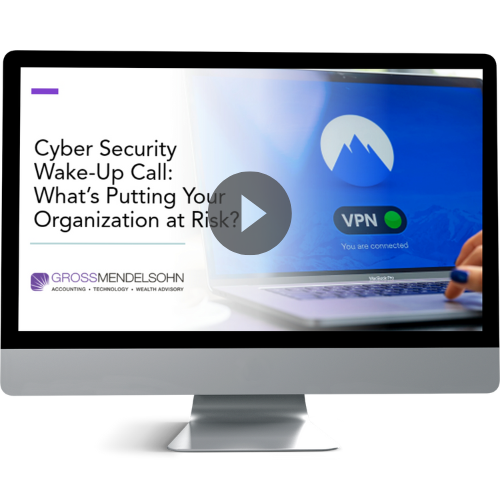In today's digital landscape, cyber security threats are more sophisticated and prevalent than ever before. As businesses increasingly rely on digital systems and data, protecting against these threats has become a critical priority.
Below, we will discuss the latest cyber security threats and explain how managed services can help protect businesses from these risks, ensuring their security and resilience.
Latest Cyber Security Threats
Ransomware Attacks
Ransomware is a type of malware that encrypts a victim's data, making it inaccessible, in most cases, until a ransom is paid. These attacks have become more targeted and sophisticated, often crippling entire organizations. (See the Change Healthcare attack from May 2024 and the June 2024 CDK Global attack).
Phishing and Social Engineering
Phishing involves fraudulent attempts to obtain sensitive information, such as login credentials, by pretending to be a trustworthy entity, often through email. Social engineering exploits human psychology to trick individuals into revealing confidential information. Successful phishing and social engineering attempts are how a lot of ransomware attacks start.
Advanced Persistent Threats (APTs)
APTs are prolonged and targeted cyberattacks where an intruder gains access to a network and remains undetected for an extended period. These attacks aim to steal data or cause disruption. (See Microsoft’s APT attack from January 2024).
Insider Threats
Insider threats involve malicious actions taken by employees or individuals within the organization. These can be intentional, such as data theft and retaliation, or unintentional, like accidentally leaking sensitive information.
Zero-Day Exploits
Zero-day exploits target software vulnerabilities that are unknown to the vendor. Because there is no patch available, these vulnerabilities are particularly dangerous and can be exploited quickly by attackers.
Distributed Denial of Service (DDoS) Attacks
Still an old classic, DDoS attacks overwhelm a network, service or website with a flood of internet traffic, rendering it inaccessible. These attacks can disrupt business operations and cause significant financial losses.
Botnets are a great example of a kind of malware, where an infected computer that has this malware that can go undetected until it receives a signal to “wake up” and start its structured attack.
If the malware’s objective is to DDoS a website, millions of computers could simultaneously start hitting a website, overwhelming the servers and causing it to go down. While DDoS attacks are not as prevalent as they used to be thanks to security providers, like Cloudflare, they are still an old favorite of attackers and script kiddies.
IoT Vulnerabilities
The Internet of Things (IoT) involves interconnected devices that communicate over the internet. Many IoT devices have weak security features, making them vulnerable to attacks that can compromise entire networks.
How Managed Services Can Protect Businesses
Managed services providers (MSPs) offer a comprehensive approach to cyber security, leveraging their expertise, technology and resources to protect businesses from evolving threats. Here’s how MSPs can help:
Monitoring and Incident Response
MSPs provide continuous monitoring of IT systems to detect and respond to threats in real-time. This proactive approach ensures that potential issues are identified and mitigated before they can cause significant damage.
Advanced Threat Detection and Prevention
MSPs use sophisticated tools and technologies, such as intrusion detection systems (IDS) and intrusion prevention systems (IPS), to identify and block malicious activities. These tools can detect unusual patterns and behaviors indicative of cyber threats. Additional cloud-based security offerings such as “Microsoft Defender for 365” and “Microsoft Entra ID” can identify and stop malware, phishing attempts and even compromised user accounts by detecting anomalous login attempts by device and geolocation.
Employee Training and Awareness
Human error is a common factor in many cyber security breaches. MSPs offer training programs and routine testing to educate and test employees about the latest threats and best practices for cyber security, reducing the risk of successful phishing and social engineering attacks.
Regular Security Assessments and Compliance Audits
MSPs conduct regular security assessments and compliance audits to identify vulnerabilities in a business’s IT infrastructure. This helps ensure that security measures and documented policies and procedures (P&P’s) are up-to-date and effective against the latest threats.
Patch Management and Software Updates
Keeping software and systems up-to-date is crucial for cyber security. MSPs manage and automate the process of applying patches and updates, including third-party patching to ensure that vulnerabilities are promptly addressed.
Data Encryption and Secure Backups
MSPs implement robust encryption protocols to protect data both in transit and at rest. Additionally, they provide secure backup solutions to ensure that data can be quickly restored in the event of a ransomware attack or other data loss incident.
Endpoint Protection and Network Security
MSPs deploy comprehensive endpoint protection solutions, such as antivirus software and firewalls, to safeguard devices and networks. These measures help prevent unauthorized access and contain potential threats. Additional security products like “Data Loss Prevention” can help stop unintended transmission of credit card numbers, social security numbers, etc. Some cloud-based products will even automatically encrypt documents and emails that contain Payment Card Industry (PCI) data, Personally Identifiable Information (PII), Nonpublic Personal Information (NPI) and Protected Health Information (PHI).
Incident Response Planning and Support
In the event of a cyber incident, MSPs provide expert support and guidance to manage the situation effectively. They help businesses develop and implement incident response plans to minimize the impact and ensure a swift recovery.
Key Takeaways
The evolving landscape of cyber security threats requires businesses to adopt a proactive and comprehensive approach to protection. MSPs offer the expertise, technology and continuous support needed to defend against these threats and ensure business continuity and compliance standards.
By partnering with an MSP, like Gross Mendelsohn, you can stay ahead of the latest cyber security threats, safeguard your valuable data and maintain the trust of your customers.
Need Help?
Gross Mendelsohn’s Technology Solutions Group can be your managed service provider. Contact us here or call 410.685.5512 for help.


